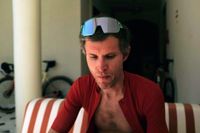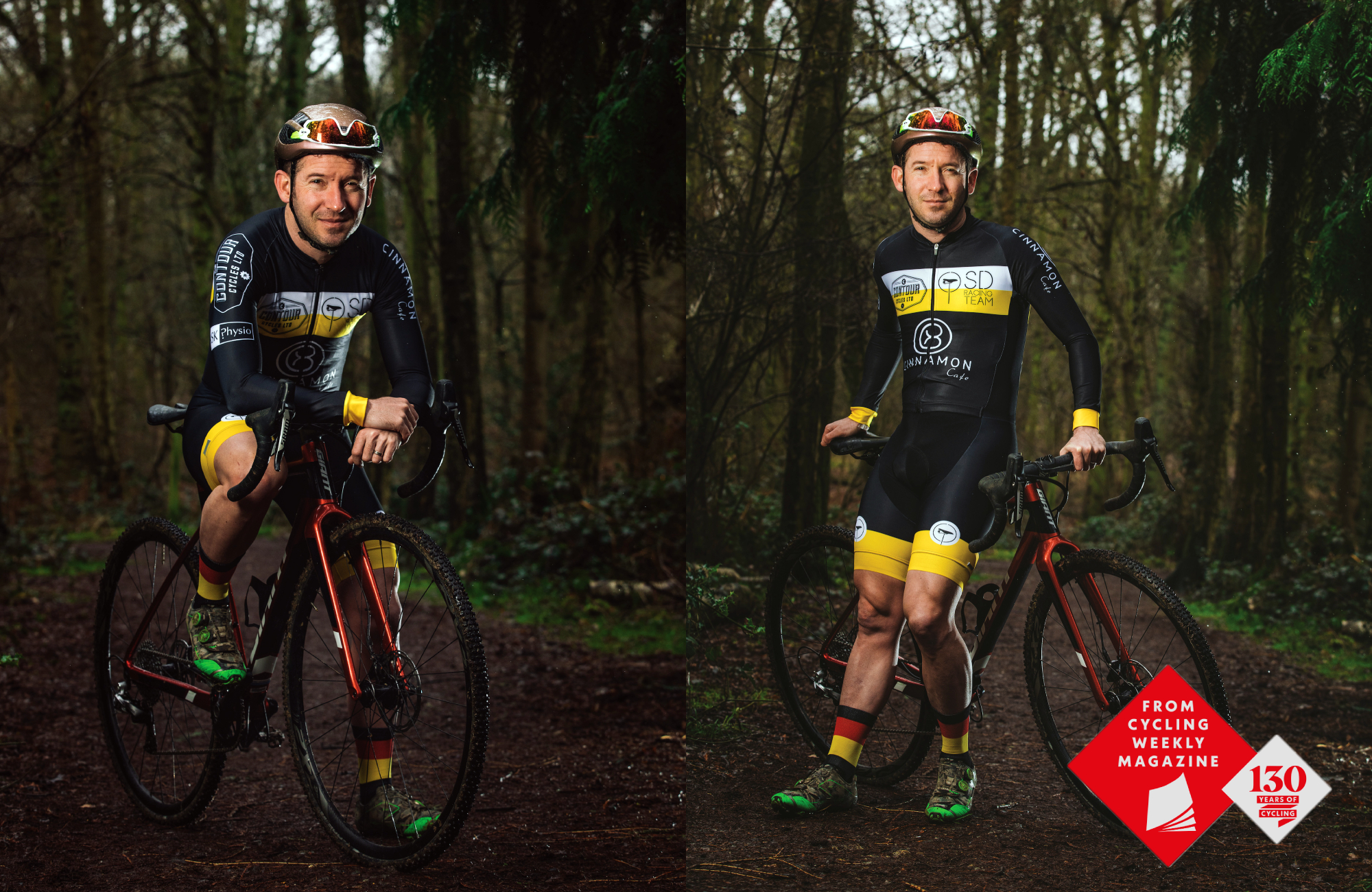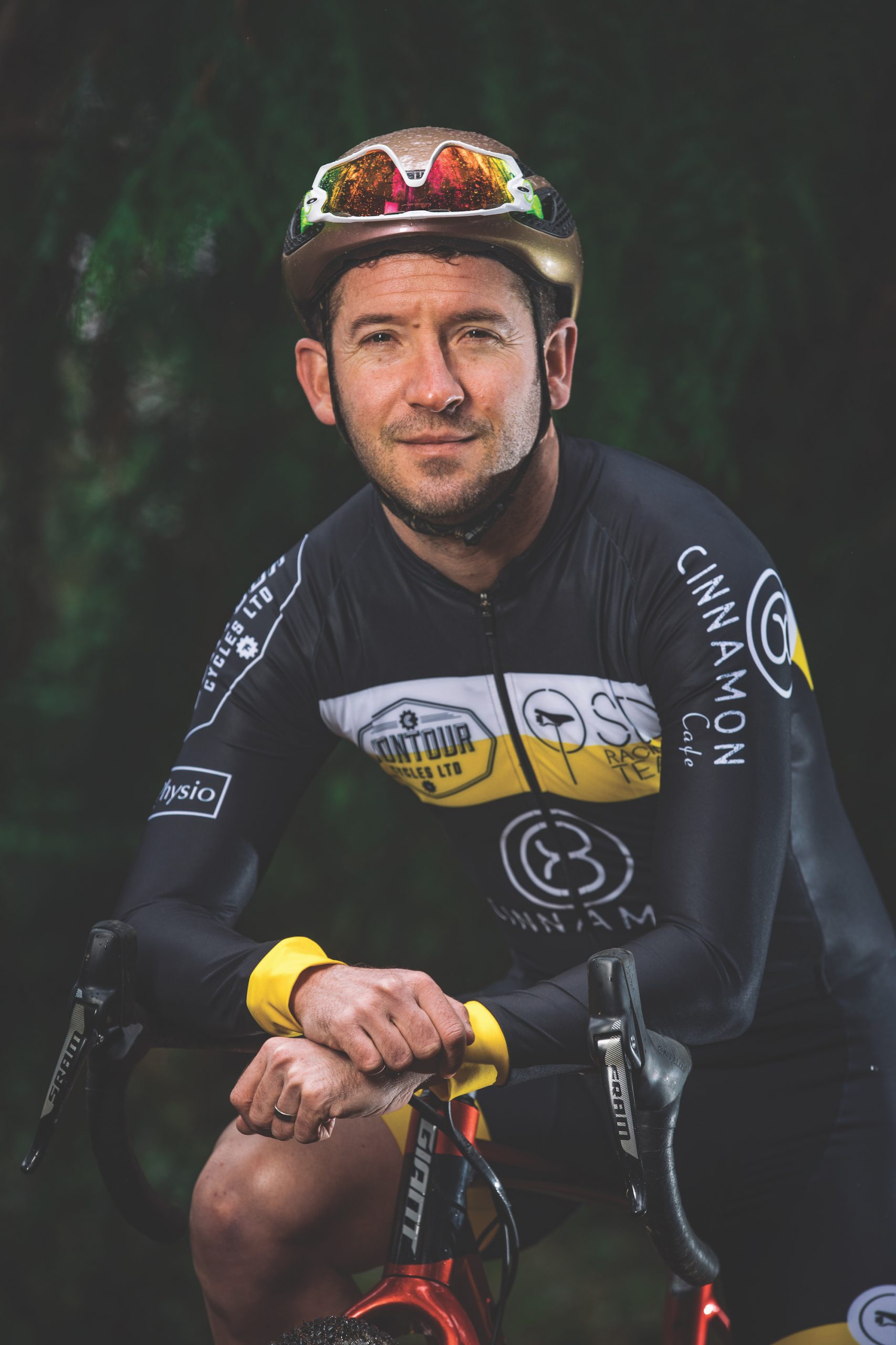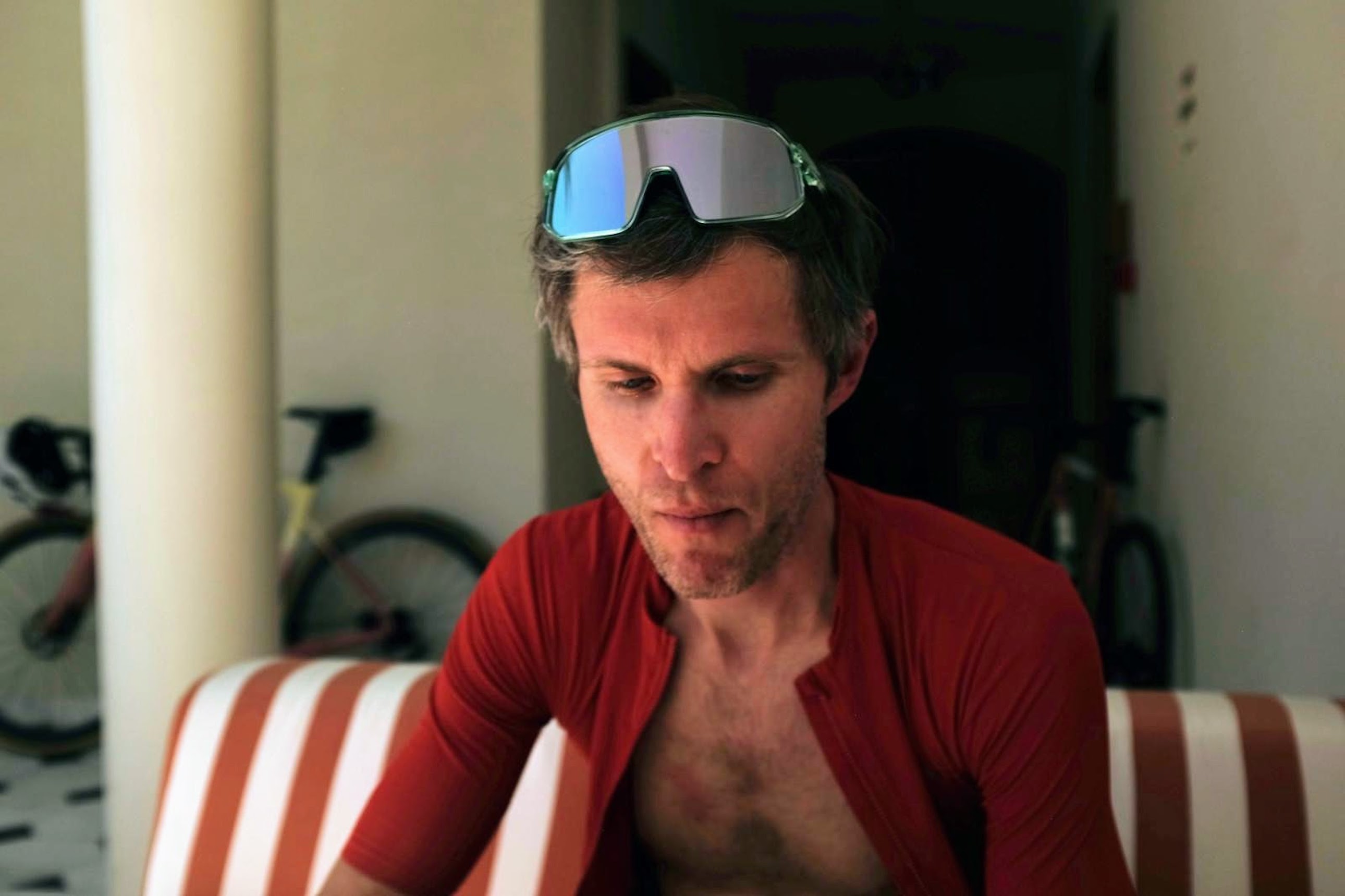'After 20 years as a national level runner, I gave it up for cycling'
While rarely ever winning a sprint as a runner, Dave Mitchinson now finds sprinting on a bike to be one of his biggest, yet unexplainable strengths


Dave Mitchinson (Daniel Gould)
The latest race content, interviews, features, reviews and expert buying guides, direct to your inbox!
You are now subscribed
Your newsletter sign-up was successful
“I’d like to think it was tongue-in-cheek,” surmises Dave Mitchinson. “I can’t believe that someone with his knowledge of elite sport would seriously think he’d run that fast.”
He is referring to Tom Pidcock, who a few days earlier had posted on Strava a run entitled “5k PB 13.25” with data that appeared to support the claim. If true, it would have placed him second on the British all-time list for 5k. ‘Too good to be true’ was putting it mildly.
Mitchinson, an emergency services worker from Hertfordshire, is well qualified to comment: he has genuine PBs of 14.04 for 5,000m and 29.45 for 10k, and, having switched to cycling in 2016, is now an elite-category bike racer. Neither of us quite understands Pidcock’s motivations for posting a far-fetched PB, but we agree that he was probably just capitalising on a GPS glitch to have a laugh and cause a stir.
It’s not that he couldn’t run very fast given the right training, reckons Mitchinson. “My guess is that he could run 15.30 off his ability as a cyclist, as he’s built like a runner,” speculates the former UK half-marathon champion, “and maybe he could eventually run 13.30 if he put the work in – but it’d be pointless, as he wouldn’t be a salaried athlete doing that.”
Setting aside the lack of financial incentive in running, I want to know how and why Mitchinson hung up his trainers to clip into pedals instead. He was still running fast in 2013, aged 34, but the relentless 100-mile weeks, year after year, were taking their toll. “Every time I ran hard, I’d be in pain for a couple of days, and for two years I couldn’t work out what the problem was.” Eventually he was diagnosed with a linguinal hernia, a tear in the abdominal wall, and underwent surgery, which left him with a comeback quandary. “I was 35, and I just didn’t feel the urge to get back to running,” he says. “I’d never anticipated stopping, but I just didn’t want to do it anymore.”
>>> Subscriptions deals for Cycling Weekly magazine
Having dabbled in duathlon a few years earlier, Mitchinson already had a cat-three licence and enjoyed cycling, so the next move was a no-brainer. “I realised it was the competition I was going to miss, not running itself,” he recalls. “I jumped in, did some third-cat crits, and was hooked – much to my wife’s disgust!”
The latest race content, interviews, features, reviews and expert buying guides, direct to your inbox!
Memories of his first foray into bike racing still vivid – “I caused a huge crash at the Elite Duathlon Champs” – Mitchinson knew that he had a steep learning curve ahead of him to avoid skin loss and repair bills. Taking a friend’s advice, he honed his bike-handling skills in track and grass track racing. “That definitely helped,” he attests.
His aerobic foundations hewn deep by years of high-mileage running, prolonged high efforts were never going to be a problem. “It was more about learning how to ride a bike and hold a wheel,” he says.

The way his running traits have transferred to cycling leaves Mitchinson perplexed; as a runner, he barely ever won a sprint, whereas on the bike bunch sprinting is now his biggest strength. “It’s bizarre, I don’t understand it,” he says, acknowledging that cycling has encouraged him to bulk up. “Physically, I’ve changed quite a bit; I’ve put on at least a stone, and I now lift weights, something I never did as a runner.”
Does he feel different as a result? “Yes, much healthier,” he says emphatically. “As a nine-stone runner, my immune system was terrible. I’d have five or six colds a winter and staying healthy was as hard as avoiding injuries.”
Training also feels more manageable now; Mitchinson racks up between eight and nine hours a week, less volume than he did as a runner and with much less wear and tear. “Running was much more physically demanding,” he explains. “On the bike you can train hard day after day.”
>>> Cycling Weekly is available on your Smart phone, tablet and desktop
Now, five years on from making the switch, what is the 42-year-old’s proudest achievement on the bike? “I won the Emergency Services Road Race in 2019,” he says, “ that was a big one for me.” Even more satisfying has been sharing the journey with his daughter Ellie, who is making her way through BC’s talent development. “That’s been the most precious thing for me – there aren’t many 14-year-old girls who are happy to spend so much time with their dad.”
Does he regret not switching to cycling sooner? “No, I’m quite content,” he says. “Had I started riding as a kid, I might have quit by now...there are still opportunities for me on the track, as well as crits, and I’m not smashing myself like I used to. I’m being realistic.” In other words, as much as he’d like to, he doesn’t expect to be sitting alongside Tom Pidcock comparing PBs any time soon.
How complementary are cycling and running fitness?
We asked Josh Walker, lecturer in biomechanics at Leeds Beckett University, to assess the reciprocal benefits...
"Cycling and running require very different inputs from the neuromuscular system: different muscle activation patterns and different musculoskeletal loading. Research has shown that running improves running economy, whereas cycling does not seem to have the equivalent pay-off for cyclists. In this sense, running may be more highly specialised than cycling; a cyclist switching to running may take a long time to accrue excellent running economy. Hence, at elite level, it appears to be more feasible to transfer from running to cycling than vice versa. That said, running does not appear to undermine cycling economy and therefore offers a great quick exercise fix for time-pressed cyclists."
This feature originally appeared in the print edition of Cycling Weekly, on sale in newsagents and supermarkets, priced £3.25.
You can subscribe through this link here.
That way you’ll never miss an issue.

David Bradford is senior editor of Cycling Weekly's print edition, and has been writing and editing professionally for 20 years. His work has appeared in national newspapers and magazines including the Independent, the Guardian, the Times, the Irish Times, Vice.com and Runner’s World. Alongside his love of cycling, David is a long-distance runner with a marathon personal best of 2hr 28min. Diagnosed with retinitis pigmentosa (RP) in 2006, he also writes personal essays exploring sight loss, place, nature and social history. His essay 'Undertow' was published in the anthology Going to Ground (Little Toller, 2024). Follow on Bluesky: dbfreelance.co.uk